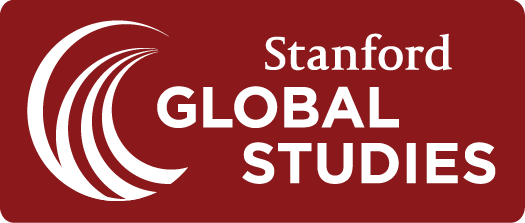In 2016, over 110 master's students graduated from Stanford Global Studies centers and programs. Here is a snapshot of some of their research projects.

Adapting to Climate Change in Rural Tanzania
By Rui Du, David Lee, Leah Nosal, and Swain Uber
M.A. in International Policy Studies, 2016
As part of their course and fieldwork, Du, Lee, Nosal, and Uber researched how climate change trends have contributed to declining agricultural productivity in Tanzania, undermining the country’s food security.
Their report was produced in consultation with Landesa, a Seattle-based NGO that works to secure land rights for millions of the world’s poorest, mostly rural women and men to provide opportunity and promote social justice.
The students also explored how the Government of Tanzania and non-profit organizations can empower rural individuals and communities—especially women—in Tanzania to better adapt to and mitigate climate change.
Given that 80% of Tanzanians depend on agriculture for their livelihoods, and because the agricultural sector represents 40% of national GDP, the students recommend that the Government of Tanzania commit to:
- strengthening rural land rights;
- improving the educational, financial, and political inclusion of rural Tanzanians;
- developing localized climate change initiatives; and
- establishing a more coordinated coalition - within government and between nonprofits - to mitigate the risks of climate change.

“A Nasty Piece of Corporate Business” The Creation of Honduras as a Banana Republic
By Jessica Milligan
M.A. in Latin American Studies, 2016
In 1911, ex-President Manuel Bonilla and banana company owner Sam Zemurray staged a coup in Honduras and overthrew President Miguel Dávila. For her capstone research project, Jessica Milligan argued that the coup was a seminal event in the creation of Honduras as a banana republic--a country that is politically unstable, economically dependent on one export product, and where foreign actors gain control of the government.
Although Honduras already welcomed foreign investment, the coup had a dramatic impact on the relationship between Honduras and foreign banana companies. While many historians have attributed Honduras’s role as a banana republic to the dominance of the United Fruit Company in the 1920s, Milligan questions this narrative by analyzing the economic and political impacts of the coup, and the importance of local actors.

Identifying Fragile States for Nuru International’s Expansion
By Misa Fujisaki, Emma Kelsey, Radhika Lalit, Yasuhito Uto, Bhavana Yarasuri
M.A. in International Policy Studies, 2016

Responsible Business, the Environment, and State Sovereignty: the Nicaraguan Canal
By Allie Ballesteros
M.A. in Latin American Studies, 2016
In June 2013, Nicaragua’s President, Daniel Ortega, granted a concession for the right to build and operate a transoceanic canal to the Hong Kong Nicaragua Development Group (HKND Group). President Ortega conceded the land for the canal before any impact evaluations could be completed, let alone initiated, to gauge the potential for environmental, economic, or social disturbances. For her capstone project, Ballesteros argues that in signing the deal, President Ortega has relinquished Nicaraguan sovereignty and jeopardized the environment, campesino property, and indigenous land rights. Every country has the right to pursue economic growth and prosperity, she writes, however, in the case of the Nicaraguan Canal, President Ortega and HKND did not adequately consider the negative externalities that a project of this scale would have on the surrounding environment and socio-political institutions.

Institutionalizing the Adoption of E-Readers at Scale in Ghana
By Nadia Anggraini. Ethan Hamilton, and David Jonason
M.A. in International Policy Studies, 2016

Examining the Link Between Public Funding of Political Parties and the Representation of Women in National Parliaments
By Magdalena Fitipaldi
M.A. in Latin American Studies, 2016
Although it has been well documented that the level of females in public office is significantly lower than that of men, a vast, and often contradictory, range of possible explanations have been put forth to account for this imbalance. Campaign financing is a fundamental part of the electoral process and previous studies have asserted that it is a space where men and women do not perform equally. For women, financing an electoral campaign is an ordeal that stands in the way of their political aspirations more often than it does for men, however, studies have not shown quantitative evidence to back the claim. Using a world sample, Fitipaldi statistically analyzed the relationship between public financing of political parties and the share of women in government. She argued that representation of women in public office should be higher in countries with public funding policies. After controlling for several factors, including the level of human development, regime type, electoral system, gender quotas, religion, female participation in the workforce, and fertility rates, she found that public funding does not have a significant effect on the levels of women in office. Instead, the data revealed that the electoral system, religion and the percentage of women in the workforce do have a significant impact on female political representation. Although this study does not test for causation, it provides suggestive evidence for future research and poses important considerations for policy makers.

A Twenty-First Century Solution for Communities and Police
By Mustafa Abdul-Hamid, Kona Shen, Amanda Ussak
M.A. in International Policy Studies, 2016
In an effort to improve police-community relations, make policing better and communities safer, Abdul-Hamid, Shen and Ussak developed a service that uses automated text messages to create conversations between community members and police. The product, called PACT, is unique in that it is a two-way channel that takes anonymous feedback from community members and sends out responses from police departments.
Through their research, the students found that there is a strong need for police to better understand local issues, build trust, and analyze off-the-record interactions between officers and civilians. Overall, lack of communication, transparency and useful data hinder efforts to improve policing and make communities safer. This helps, in part, to explain the tensions between police and communities, the students wrote.
By using text messages, citizens can provide immediate feedback about their interactions with local police--in any language--as well as opinions on law enforcement policies, rather than visiting a police department in person or other inconvenient options.
The tool enables police to increase positive interactions with community members, receive quality data on their efforts, and improve their transparency and accountability while limiting their risk and administrative burden.

Increasing Financial Inclusion in Mozambique
By Chris Walker, Lucie Zikova, María García Lecuona, Shiv Vadivelalagan
M.A. IN INTERNATIONAL POLICY STUDIES, 2016
Nearly 60% of the adult population in Mozambique does not have access to any sort of financial services. For their practicum project, Lecuona, Vadivelagan, Walker, and Zikova identified high potential rural districts for introduction of financial services and made policy recommendations to build an inclusive financial sector in the country.



